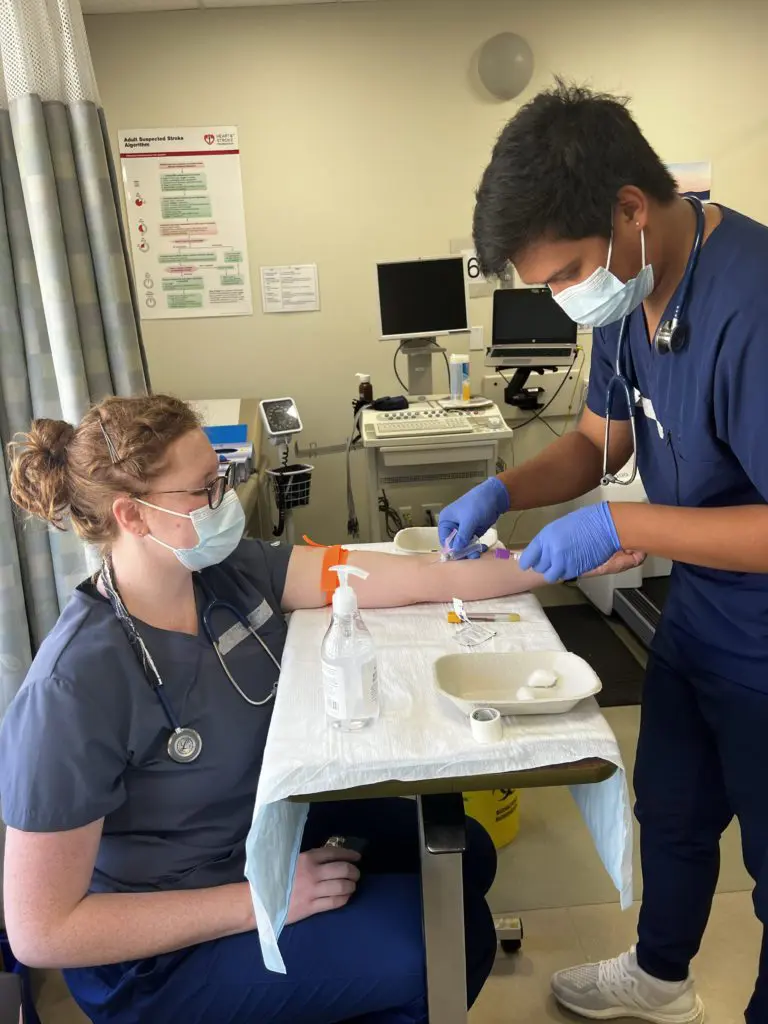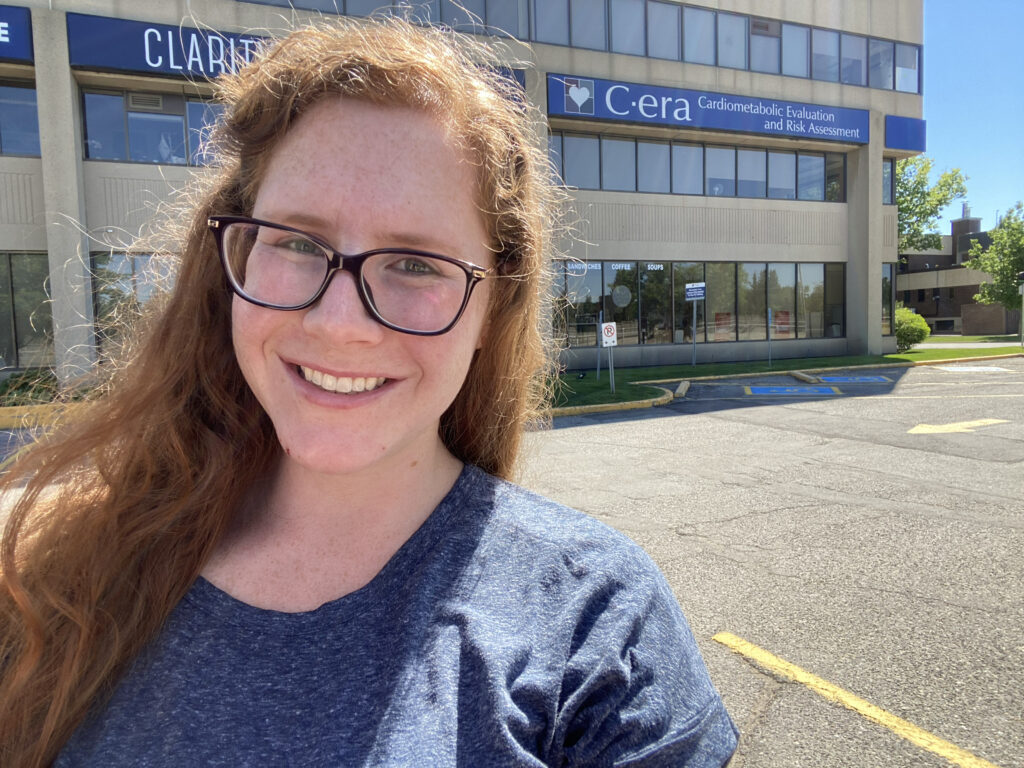When I first got into the Cardiology Technology program, I was terrified of the medical lab course. All they had to say was phlebotomy and I was feeling queasy. This is the portion of the program where we learn about blood tests, the medical labs in the hospital and yes, drawing blood from patients. I think this must be a difficult aspect for a lot of people thinking of going into the medical field (I myself used to veto career options based on their use of needles). However, when I was told this was part of the course, I was bound and determined to overcome my fears.
To begin what was possibly a wasted effort in trying to overcome my fear, I started by talking to someone who worked for Canadian Blood Services, and asked what she recommends to help someone get over a fear of blood and needles. She said to start by watching videos of it until you no longer feel faint, and then try watching it in real life, and then try to donate blood until you get used to it. I have to admit I am stuck on step two: I can watch it in the hospital but still feel faint when my blood is taken. Fortunately, I only have to take other people’s blood, so I think I will get by. I have yet to try my hand at it, but I’m optimistic. This was truly great advice and if I can do it, anyone can!
The great thing about the advice I received is it can be transferred to any aspect you find particularly difficult in a course. Say you’re having trouble remembering the steps to a stress test. Well, you can find videos of that online. The same goes for something like having to remember the cardiac drugs (another almost impossible endeavor) where you can find lots of tutorials. Resources are out there, you just need to go looking for them.
As far as the course itself, I found it very challenging because it was probably one of the more hands on courses in the whole program. In theory it is very difficult to keep things that are unfamiliar to you straight. I am hoping as with the other hands on courses once we get into lab it will all come together (I think this is quite often the case). I try to make sure I do not get too caught up in difficulty with theory of the hands on courses. It is part of why this course has labs. You need to learn both for it to make sense. Medical lab is also a very useful course to have under your belt because familiarity with blood tests is essential to any job in the hospital setting because these tests are used so often. While it has been a challenge to one, learn the material, and two overcome my fear of the hands on segment, I think this course will end up being one of my favourites because of its usefulness in the workplace.
Check out a video of our cardio tech students in action.






![An ECG demonstrates the extensive antero-septal-lateral myocardial infarction [heart attack] that Taryn witnessed.](https://stenbergcollege.com/wp-content/smush-webp/2022/12/ecg-1024x530.jpg.webp)



